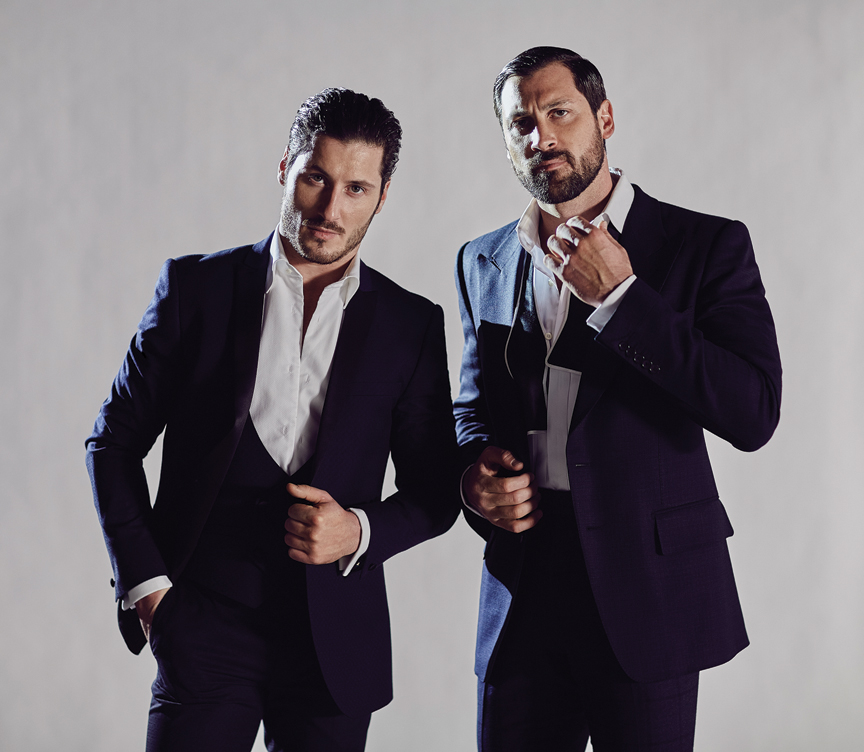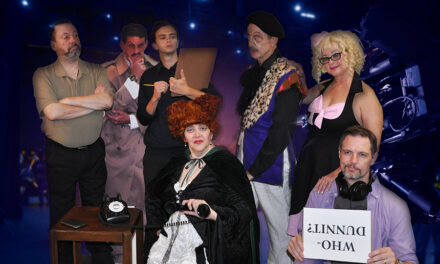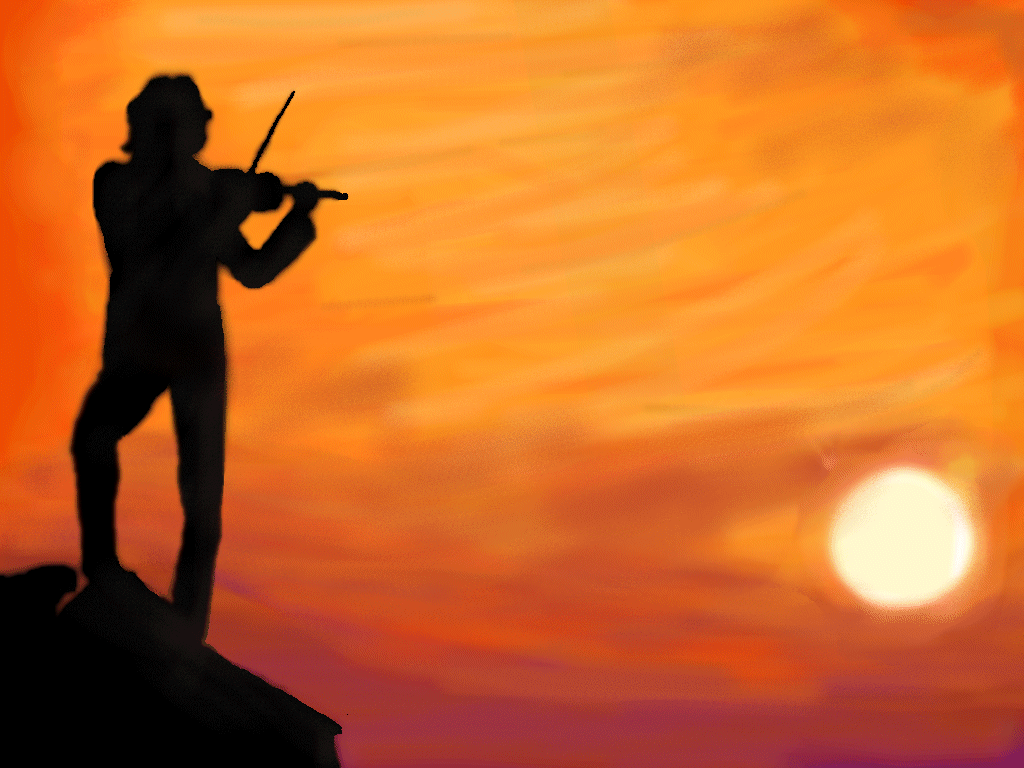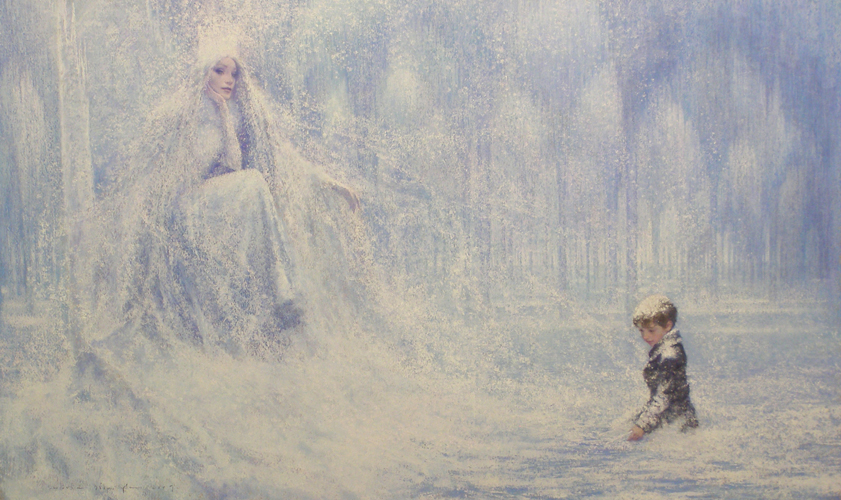Interview with Maksim Chmerkovskiy by Scott Dowd.
Entire contents © 2016 Fearless Designs, Inc. All rights reserved.
As he is quick to tell me, Maksim Chmerkovskiy is first and foremost a businessman. Since his arrival in the United States just over two decades ago, he and his family have worked to achieve success. It seems trite to talk about the American Dream these days, but Maks exudes immigrant enthusiasm. He is unabashedly hopeful and optimistic as he describes his life and what led him and his brother to their own celebrity status as the professional half of the team on Dancing With The Stars. Maks and his younger brother Val have created their own show, Maks & Val Live On Tour: Our Way, as a vehicle for celebrating their lives together and showcasing their many talents. I spoke with Maks as he began his day in Los Angeles.
Scott Dowd: You seem to always be running from one thing to the next.
Maksim Chmerkovskiy: I try to. We were brought up to seize opportunities when they present themselves. The entire idea of immigration is just that: You go somewhere else because you’re going to be given chances there. That’s how my family was. That is what our story is and that is how my personality was formed.
SD: How much of that is included in the tour?
MC: That is what the tour is all about. We are going to show people what we did. We want to say, “This is how we did it.” It wasn’t always pretty and it isn’t the only path for achieving your goals, but it was our way.
SD: And you got a positive end result.
MC: It’s not an end result yet. We are just getting started in a lot of ways.
SD: Aside from ticket sales, what will make the tour a success in your mind?
MC: I hope we can inspire some people. Especially now, with politics and all the negativity in the world, I think people begin to ask themselves, “What’s the point?” People may start to lose hope. We don’t pretend to be inspirational speakers, but maybe we can inspire a few people who are coming to see our show to say, “These two awkward-looking dudes did it. I can do it, too.” We have this opportunity to speak to the world through the medium we know the best—dance.
SD: Tell me more about the structure of the show.
MC: We are going to dance. We want to entertain, make people laugh; and maybe somebody’s going to shed a tear—I don’t know. It’s autobiographical.
SD: You were about fourteen when your family moved to Brooklyn in the early 1990s. You were old enough to understand some of what was happening at the end of the Soviet Union. What was life like in Odessa in those days?
MC: I talked with my dad about this a couple days ago. He said that if we had stayed there, he would have been one of two things: either dead or a millionaire. That is the reality of that place, back then especially. Things were very confusing at the end of the Soviet era. We grew up with the idea that there was no privatization—you can’t own things. The state owns stuff. Then, all of a sudden, the state says, “You can own your own stuff—get out.” Things got very weird as the governments split up. The few at the top got everything.
SD: Was that a big difference for you?
MC: Nothing changed, except that the people who used to be bullies now became rich bullies. My dad is not a bully. He has a different psyche. He’s not going to raise his fists for his place under the sun…he’s going to try to do the right thing. That place was wrong for those types of people. When he realized that, he didn’t want to be there anymore. He thought, “I’ve got two kids and this isn’t the time for me to see if I can be successful here.” He knew there was a place out there—even though it was strange and difficult to get to—where the opportunities are real. In this place you don’t have to be someone you are not, someone you’re not comfortable being. You can just come in quietly and peacefully—which is the most important thing. My dad was able to build a foundation here for himself and his family.
SD: Was New York what you expected?
MC: There were two categories of people in Eastern Europe at that time: People who thought New York City was full of terminators walking around blowing up Robocops surrounded by burning cars. The other group thought there was money falling from the sky. It was just about how fast you can grab it. Two very, very wrong perspectives. Even today, I can remember how JFK airport smelled that day. I looked around and I thought, “This is great. We can do this.” I was fourteen, my brother was eight.
SD: Was it an easy transition for the whole family?
MC: My mom was in pieces. She couldn’t cope with any of it. My dad hit the ground running.
SD: You had already been dancing for ten years at that point. Had you decided to be a dancer before you came here?
MC: No. I hated dancing. I didn’t get it. I didn’t understand it. We come from a culture where there is always a celebration…always drinking and dancing. It’s very close to Greek culture in many ways. I was constantly being told, “Go dance!” and pushed into the circle. I’m ten years old with a huge complex, which nobody noticed or cared much about. I’m standing there terrified trying to cha-cha and samba with a girl and not knowing what to do. You know, I’ve never spoken about this before—but I really didn’t like dancing.
SD: What changed that?
MC: When we came to America, I had to get a job. So I went to a Russian restaurant with my partner and we put on a show. We were both fifteen by then and dancing at midnight in Russian nightclubs for twenty-five dollars a night. That became a source of income. I was making seventy-five dollars a weekend. I began to think, “How do I get a raise?” I couldn’t just walk up to this dude who owned the clubs—he was ex-KGB, a massive, giant guy—and say, “I want a raise.” So I thought in my fifteen-year-old brain that if I brought him a trophy from something big—like the nationals—that could serve as my resume…something to say, “I’m better now and if I’m better now, then I think I deserve maybe thirty bucks a show.” I thought that was a good plan. That’s when I got into dancing.
SD: So you became second in the United States and seventh in the world among professional international Latin couples to try for a fifteen-dollar-a-week raise?
MC: That was the original plan. But then my dad and I opened a studio, and I had my own studio—it’s a long and powerful history and pretty interesting to tell, which is what we are about to do with the tour.
SD: How will your show be different? You seem to be looking to do something no one else is doing in everything you try?
MC: You hit the nail on the head, exactly. It’s an autobiographical piece and we want to talk about everything that got us to Dancing With the Stars. I’m not going to talk about who my favorite partner was or who my least favorite partner was. The show is in its twenty-second season and I am ecstatic for its success. My brother starred on the show, my fiancé starred on the show—and there are a lot of connections to that show still.
SD: We haven’t talked a lot about your brother up to this point.
MC: Just like I am telling you my story, Val has his own. We moved to New Jersey because I opened a studio there. We left Val in Brooklyn when he was twelve or so because he was going to Mark Twain Public School for the Gifted and Talented. He was living with my grandma in the middle of the ghetto outside of JFK airport. He would take his violin at night on the bus back to Grandma’s house. He used to fall asleep and go past the stop and wind up in East New York— not a place you want to be at any time, let alone if you’re a kid with a violin. But he got a lot of exercise that way and learned to move well. That led him to Carnegie Hall and Avery Fischer Hall as concertmaster in the Manhattan Music Orchestra. At the same time, he was a straight-A student and a seventeen-time U.S. National Latin Dance champion.
SD: You were one of his first coaches?
MC: Yes. But I would never take credit away from him. I did my part, but he did the rest.
SD: It is surprising, but you and Val really haven’t worked together very much up to this point.
MC: Right. We started talking and decided to put together a really unique and different show. Val has been touring in between Dancing With The Stars and I have been touring, as well as choreographing, directing and producing my own productions. Finally, we decided to get together and tell this story through movement, dance and some speech.
SD: Will you be speaking between numbers?
MC: Some. But it is all scripted. It’s a play of sorts—but not an ad lib question-and-answer session. This is an hour and a half of serious entertainment. As I said, hopefully, it is inspiring as well. I am very excited to be working with some of the best choreographers in the business—people we have built relationships with over the past ten years. We have been working very hard on this project and I hope everyone will come out and celebrate with us on July 25.
Tickets for Maks & Val Live On Tour: Our Way are on sale now at The Kentucky Center Box Office, online at kentuckycenter.org, or by calling 502.584.7777.
Scott Dowd has a wealth of experience working within and commenting upon the arts scene in Louisville. He has been involved with Kentucky Opera, the Louisville Orchestra, and Louisville Public Media. His talents and experience include: Actor; Director; Singer; Musician; Radio and Television Interviewer; Classical and News Jock; Public Speaking; Public Relations; Marketing; Development; Writer; Substantive Editor. He currently serves on the Board for Arts-Louisville.com.





